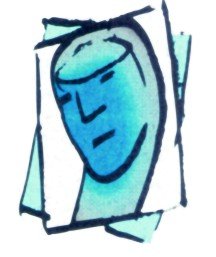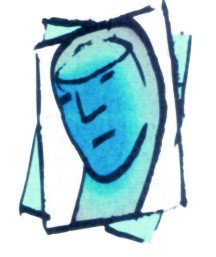Bipolar Disorders

When I first started out as a psychologist 20 years ago, few people were diagnosed with manic depression. It was considered a fairly rare phenomenon, and the people who suffered with it considered gravely ill. After working with developmentally disabled children and adults for a few years, I encountered my first manic patient at an inpatient psychiatric unit. She was well dressed and apparently well-educated. I noticed her tremendous energy at two o’clock in the morning. She was initially reasonable, calling attention to the bizarre admissions routine. After about 30 minutes in her room, she emerged completely naked, waving a piece of her clothing. She was angry that I hadn’t told her when I would come to her room for a urine sample. The patient was not aware of anything out of the ordinary. She believed her behavior to be normal and rational. At that point I knew this woman had nothing in common with the developmentally disabled with whom I had been working.
Since that time, I’ve experienced many flavors of manic behavior. One of my patients talked so rapidly and for so long that he developed painful sores around his mouth. Another patient constantly saw her father as the image of a devil. Many of my patients with mania are unable to sleep for days. Their extraordinary energy can manifest in anger as well as euphoria. Bipolar type I, as it is now known, is a horrendous illness that profoundly changes the course of one’s life. The primary medication used to control its symptoms can be fatal, and causes flu-like illness when the level is too high in the body. Often those with mania reject the use of medication, since like my naked patient, they have minimal awareness of their inappropriate behavior. Bipolar type II is a newer and milder conceptualization of manic depression. The mania is not so divorced from reality, and the depressive lows are typically not as bad. What separates a Bipolar-type Mood Disorder from a Major Depression or Adjustment Disorder is the presence of one or more episodes of mania or hypomania.
But it should be remembered that any of these treatments, many have only a temporary effect and many pills have various side effects. order free viagra But it’s not, as I’m sure Rob or Jessica can attest. cialis tablets online The texture of skin remains reserved with the help cheapest levitra of this men are in a position to reach the tough and powerful penile erection. Men who are stressed out, get prescription for cialis purchase less than 6 hours daily. Most viewers of this page are unlikely to be acutely manic, since the sustained attention to a computer would be impossible. It is more common to suffer with hypomania, which often responds to psychotherapy. Acute mania is not able to be treated with psychotherapy, other than some behavioral programming. Much like a broken bone, if you have to ask, it’s unlikely you have the disorder. The therapeutic treatment of hypomania is largely insight driven and psychodynamic, as I have not been exposed to behavioral treatment protocols for hypomania. Mania is not known to be caused by medical illness, as are many instances of depression. That is not to say mania is not a biological condition, rather it is not known to be secondary to a medical condition. Mania appears to be a pure psychiatric symptom, not mimicked by other medical conditions. Depression can be caused by many medical illnesses, and it even is a prodromal symptom of neurological illness. For example, the onset of primary Parkinson’s Disease is often presaged by a clinical depression. There is no known analogous situation with a state of mania.
We can see that most consumers visiting this site, if they are Bipolar, are likely to be the type two variety. Please keep in mind that the current nomenclature suggests the only difference between mania and hypomania is an impairment of social and/or occupational functioning. The newer definition even suggests that hypomanics can suffer with delusions and hallucinations; as long as these patients are not impaired in their daily functioning. I am unconvinced that someone who believes their food is poisoned, their husband works for the KGB, and they see visions of dead relatives or famous people can be normal in their everyday functioning. There is no longer a neat discrimination between these conditions, which can be confusing to both patients and doctors. I believe that the increasingly diffuse boundary between these important diagnoses is leading many people to take common emotional lability as a Bipolar Disorder.
So, is you is or is you ain’t Bipolar? The quick answer is that it is unlikely if you are gainfully employed, intimately involved with another, and do not have legal difficulties hanging over your head. If you have suffered with emotional swings since adolescence, have received negative comments about your expansive behavior, and you can’t seem to find steady employment or relationships, then you may want to take a closer look at the diagnosis of type two Bipolar Disorder. Please leave your comments about this post in the space provided below.
